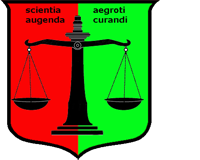Professor Dr. med. Christian ScharfetterDept. of Psychiatry, Psychotherapy & PsychosomaticsPsychiatric Hospital, University of Zurich |

|


|
The Burden of Incomplete TreatmentsLittle is known about the etiology of major psychiatric disorders, and a diagnostic differentiation based on biological markers or objective laboratory methods is currently not available. Accordingly, it is hardly surprising that only incomplete treatments for these disorders are in use and that there is no cure in the majority of cases. Pharmacological treatment, though effective, is unsatisfactory in the sense that (1) a large proportion of patients (35% - 45%) exhibit a refractory clinical picture which is resistant to all treatment modalities, and (2) the question of predicting treatment response in the individual patient is not answerable for any of the currently available antipsychotics and antidepressants. Etiology of Major Psychiatric DisordersEvidence from twin, family and adoption studies suggests that, ultimately, genetic markers may represent the most important trait-like characteristics in the etiology of major psychiatric disorders. However, genetic predisposition appears to vary across patients and to "explain" no more than 25% to 60% of the observed phenotypic variance, depending on the onset of illness, severity of illness, and long-term course of clinical syndromes. Therefore, genetic predisposition has been conceptualized as acting nonspecifically, by elevating a subject's "vulnerability" (or "sensitivity") to environmental or endogenous challenges. Vulnerability, however, is neither necessary nor sufficient for the development of psychiatric disorders. Mechanisms that Support and Maintain HealthA subject's vulnerability is typically compensated, at least in part, by resilience factors. The term "resilience" is used here as a broader concept than just neurogenesis, encompassing all those intrinsic/endogenous mechanisms that support and maintain health, thereby enabling patients to cope with stressful situations (includes the concept of autotherapeutic capacity). This may include personality traits supporting or impeding social skills. References
Angst J., Scharfetter C, Stassen HH: Classification of Schizoaffective Patients by
Multidimensional Scaling and Cluster Analysis. Psychiatria Clin 1983; 16:
254-264
Angst J, Bänninger R, Nüsperli M, Scharfetter C, Stassen HH: Syndromale Gruppierungen endogener
Psychosen in genetischer Sicht. In: Perspektiven der Schizophrenie-Forschung, ed: Pflug B.,
Foerster K., Straube E.; Fischer, Stuttgart New York, 1985: 25-38
Stassen HH, Scharfetter C, Angst J: Morbid risks of subgroups of affective disorders: some
methodological and empirical results. J Psychiat Research 1987; 21: 347-355
Stassen HH, Scharfetter C, Winokur G, Angst J: Familial syndrome patterns in schizophrenia,
schizoaffective disorder, mania and depression. Eur Arch Psychiatr Neurol Sci 1988; 237:
115-123
Angst J, Stassen HH, Gross G, Huber G, Stone MH: Suicide in affective and schizoaffective
disorders. In: Marneros A. and Tsuang M.T. (eds) Affective and Schizoaffective disorders.
Springer, Berlin-Heidelberg 1990: 168-185
Stassen HH, Schmid GB, Gross G, Angst J, Huber G: Prädiktoren des langfristigen Verlaufs
schizophrener Erkrankungen. In: G. Huber (ed), Idiopathische Psychosen: Psychopathologie,
Neurologie, Therapie. Schattauer, Stuttgart-New York, 1990: 95-104
Scharfetter C, Stassen HH: Psychopathological concepts. Psychopathology 1995; 28: 8-12
Stassen HH, Ragaz M, Reich T: Age-of-onset or age-cohort changes in the lifetime occurrence of
depression? Psychiat Genetics 1997; 7: 27-34
Angst J, Stassen HH: Methodische Probleme der Prüfung von Antidepressiva. In: Stieglitz RD,
Fähndrich E, Möller HJ (eds): Syndromale Diagnostik psychischer Störungen. Hogrefe, Göttingen
1998: 5-12
Angst J, Angst F, Stassen HH: Suicide risk in patients with major depressive disorder. J Clin
Psychiatry 1999; 60,2: 57-62
Angst F, Stassen HH, Clayton PJ, Angst J: Mortality of patients with mood disorders: follow-up
over 34 to 38 years. J Aff Disorders 2002; 68: 167-181
Stassen HH: Veränderungen der Sprechmotorik. In: T.Jahn (ed) Bewegungsstörungen bei psychischen
Erkrankungen. Springer Heidelberg 2004: 107-125
Angst J, Sellaro R, Stassen HH, Gamma A: Diagnostic conversion from depression to bipolar
disorders: results of a long-term prospective study of hospital admissions. J Aff Disorders
2005; 84(2-3): 149-157
Stassen HH, Angst J, Scharfetter C, Szegedi A: Therapie mit Antidepressiva: Erfolg von
genetischen Faktoren abhängig? Leading Opinions, Neurologie & Psychiatrie 2005; 6: 25-27
Stassen HH, Scharfetter C: Ethnische Zugehörigkeit und Vulnerabilität am Beispiel der
Affektkrankheiten und Schizophrenien. Die Psychiatrie 2005; 2: 85-95
Stassen HH, Angst J, Scharfetter C: Genetik affektiver Störungen —der quantitative Ansatz
syndrom-orientierter Modelle. In: M. Leuzinger-Bohleber, S. Hau, H. Deserno (hsg): Depression
—Pluralismus in Praxis und Forschung, Vandenhoeck & Ruprecht, Göttingen, 2005, pp. 219-257
Stassen HH, Scharfetter C, Angst J: Functional Psychoses —Molecular-genetic Evidence for a
Continuum. In: A. Marneros and H.S. Akiskal (eds) The overlap of affective and schizophrenic
spectra. Cambridge University Press 2006; pp. 55-78
Stassen HH, Scharfetter C: Vulnerability, resilience and response to psychotropic drugs:
shared genetic factors? Am J Med Genetics 2006; 141: 707-708
Stassen HH, Angst J, Hell D, Scharfetter C, Szegedi A: Is there a common resilience mechanism
underlying antidepressant drug response? Evidence from 2848 patients. J Clin Psychiatry
2007; 68(8): 1195-1205
|
|

Myriel is a longterm schizophrenic patient whose powerful language, as expressed through her prose and poems, enthrall and fascinate the reader instantaneously. A similar fascination emanates from her paintings and drawings. Thus, her individual suffering, reflected through the power of artistic expression, becomes a depiction of the schizophrenic disorders of the self in general. |
|
| [ Mail to Webmaster ] k454910@ifrg.ch |